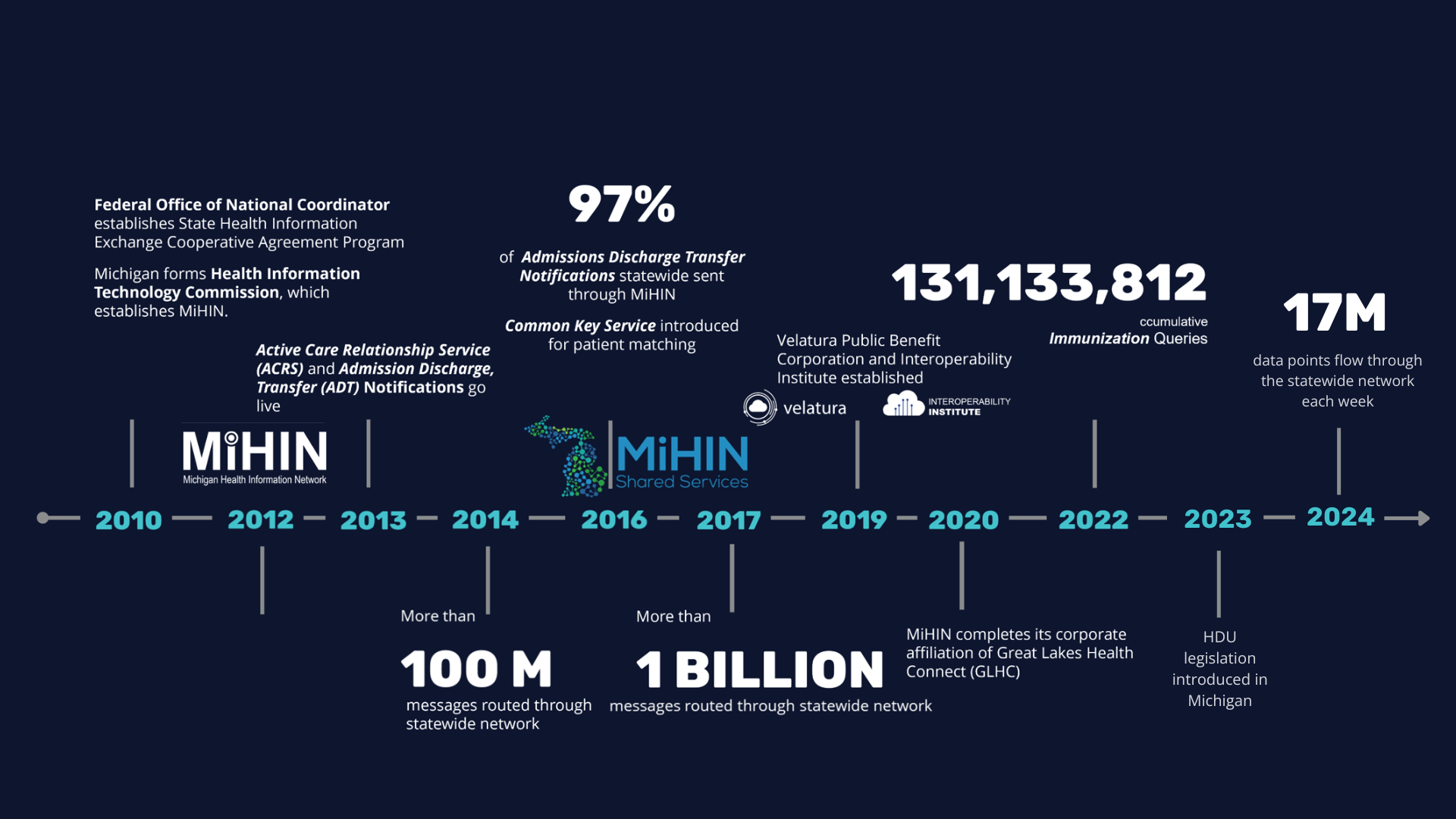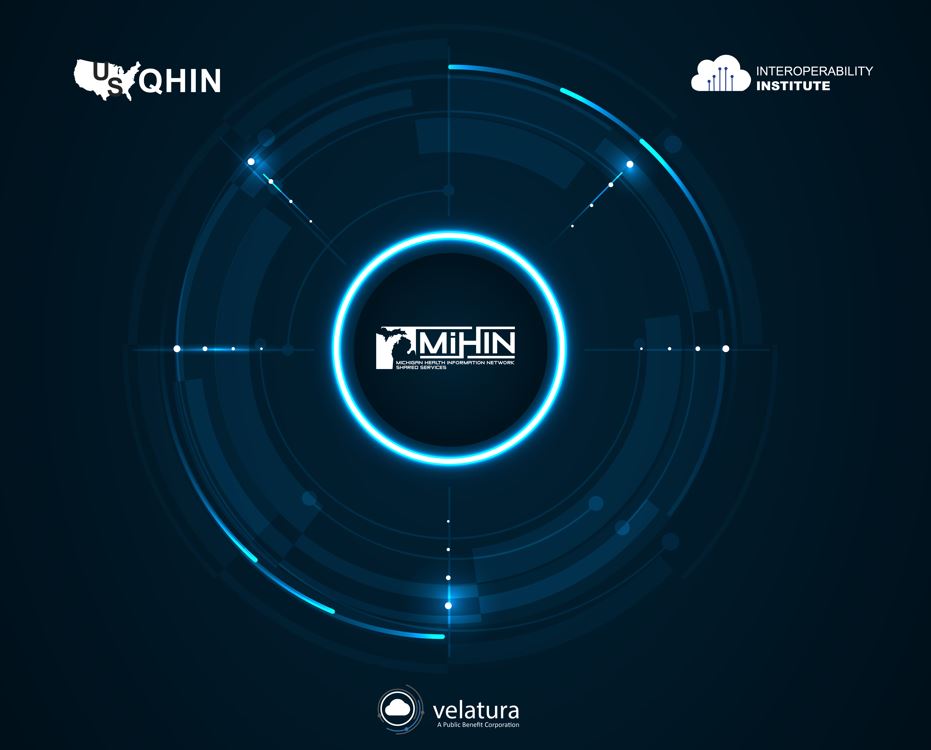Our Mission
Michigan Health Information Network Shared Services (MiHIN) is a public and private non-profit collaboration dedicated to improving the healthcare experience, improving quality and decreasing cost for Michigan’s people by supporting the statewide exchange of health information and making valuable data available at the point of care.
Engagement
Collaboration
Coordination
Continuous Improvement
About Michigan Health Information Network
In 2010, the State of Michigan applied for and received funding under the Health Information Technology for Economic and Clinical Health (HITECH) Act, to build on preparatory work regarding the statewide health information exchange (HIE) as a public health investment in Michigan’s health infrastructure.
The State received approximately $14m through the ONC HIT State Cooperative Agreement program to facilitate the construction of a statewide exchange. This funding was used to further develop the Michigan Health Information Network, or MiHIN. The governance model adopted by MiHIN is a hybrid model, meaning that it is partially centralized. Ecosystem partners and network participants have access to two arenas of shared discretion: The Health It Commission and the MiHIN Board of Directors.
The implementation of the Admission, Discharge, Transfer (ADT) Notification service gave MiHIN a boost early in its growth by opening the door to collaborative opportunities with the provider community. By 2016, 97% of admissions statewide were sent through MiHIN.
By 2017, more than 12 million patient health information messages were passing through the MiHIN network weekly. The amount of information flowing through MiHIN required the ability to scale on demand, thus requiring MiHIN to move to a cloud-hosted environment with Amazon Web Services (AWS).
Throughout 2019 and 2020, MiHIN affiliated with Great Lakes Health Connect (GLHC) to deepen the collective impact and strategical alignment for ongoing national efforts and regulations, such as the Trusted Exchange Framework and Common Agreement (TEFCA).
In 2021, MiHIN was awarded funding from the ONC as part of the Strengthening the Technical Advancement and Readiness of Public Health Agencies via the Health Information Exchange Program.
Being 100% cloud based and with over 8.3 billion cumulative messages exchanged to date, there are now 148 hospitals, 665 outpatient facilities, 298 skilled nursing facilities, and 44 physician organizations connected to MiHIN. The system routes information for more than 13 million patients, and participating hospitals send notification for approximately 99% of all admissions in the state.
MiHIN is now evolving to an integrated technology platform, to provide our network better technology with less complexity that’s positioned to take advantage of HL7® FHIR® (future technological transformations).
MiHIN’s Evolution
The state promoted the early growth of HIEs by encouraging local organizations to form throughout the state.
MiHIN evolved as a solution to data silos that emerged among hospital and health systems and the variety of electronic health record software they implemented. Michigan subsequently formalized MIHIN as the state designated HIE and today engages with MiHIN as a consolidated, statewide, public-private partnership.
For Michigan, a careful balance of state engagement and private enterprise, starting with many small HIEs and evolving to one, has produced a capable and innovative infrastructure.

“As a follower of the late Dr. Avedis Donabedian, creator of the Donabedian Model, I am huge believer in structure influencing process which in turn leads to an outcome. Consequently, I view our work in health information exchange over the last decade as largely focused on creating a digital pillar that undergirds the structure supporting health care.”
Tim Pletcher, DHA – MiHIN Executive Director
Growing the Network, and our family of companies, for a Healthy Future
Velatura Public Benefit Corporation
Velatura strategically aligns and connects people and organizations outside of Michigan, technology, ideas, and information to improve healthcare, simplify work and reduce costs.
Offering market-driven solutions, Velatura supports organizations in their mission to interoperate and streamline the sharing of pertinent electronic information.
USQHIN
USQHIN is an alternative nationwide health information network, focused on rationalizing interstate data exchange at national scale.
Interoperability Institute
The mission of IOI is to enable organizations and communities to harness the benefits of interoperability at scale. This mission is achieved through next generation workforce training, interoperability testbed standardization, and solution development focused on enabling interoperability and standards.

